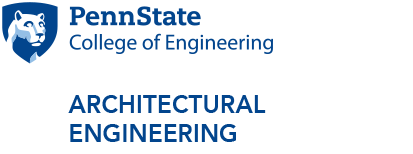Automation, Robotics, and Digital Twins in Construction
Faculty in the Penn State Department of Architectural Engineering conduct fundamental research on data science, automation, robotics, sensing, and virtual and augmented reality to evaluate construction practices, methods, and retrofitting solutions, as well as implications for the physical and psychological well-being assessment of those in the construction industry. Their research advances industry construction processes through new approaches for industrialized construction, integrated teams, technology, and environmental stewardship.
Research labs focused on this research area:
- Immersive Construction (ICon) Lab
- Digital and Interdependent (DII) Built Environment Lab
- Built Environment Analytics and Modeling Lab (BEAM Lab)
Current and recent research includes the following:
(funding bodies in parentheses; Penn State architectural engineering faculty names bolded)
- Industrialized and robotic construction sites (IRoCS) (National Science Foundation), Robert Leicht, Alan Wagner, Susan Mohammed, Marissa Shuffler, Bryan Franz
- BIM for infrastructure (Transportation Research Board), John Messner
- Smart model-centric life cycle approach to collaborative execution of capital projects (Construction Industry Institute), Robert Leicht, John Messner
- PennDOT Digital Delivery Directive 2025 (Pennsylvania Department of Transportation), John Messner
- Proactive design coordination based on BIM and graph theory (start-up funding), Yuqing Hu, Kamesh Madduri
- Disaster resilience analysis in socio-technical systems (start-up funding), Yuqing Hu
- Eye tracking for semantic segmentation of buildings and existing damages (start-up funding), Rebecca Napolitano
- AI-driven generative redesign of existing buildings (Penn State Stuckeman School), Rebecca Napolitano, Heather Ligler
Research Areas
- Smart and Resilient Cities
- Indoor Environmental Quality, Human Health, and Productivity
- High-Performance Building Materials, Structural Systems, and Envelopes
- Building Energy Solutions
- Modeling, Simulation, and Diagnostics Under Uncertainty
- Automation, Robotics, and Digital Twins in Construction
- Engineering Education



